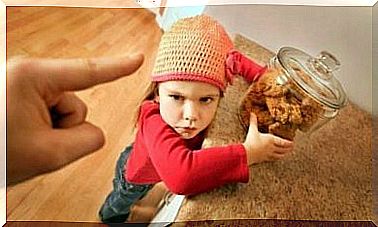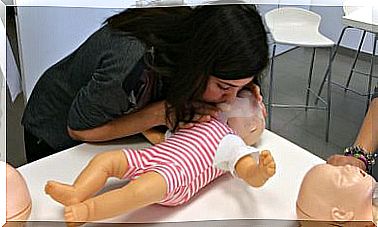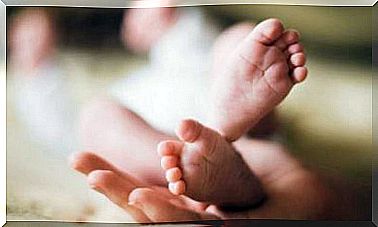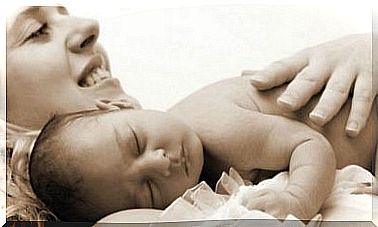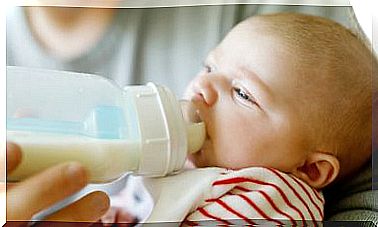The First Month In Your Baby’s Life
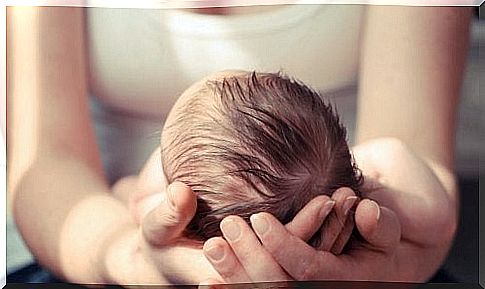
In this post we look at these typical occurrences. The first month in your baby’s life is associated with a lot of new things and we want to tell you what to expect so that you can deal with it more relaxed.
The first month of your baby’s life can pose hundreds of questions for you. How do you feed it, when should you bathe it, what happens to its navel and how do you best care for your baby ..?
If you’re a first-time mom, you probably have a lot more questions.
But don’t worry: there are many things babies do at this stage that look alarming at first, but are actually quite normal.
It is important that you always keep an eye on your baby, that you are looking after him and that he is giving him the attention he needs. If necessary, speak to a specialist about the things that seem unusual to you.
The first month in your baby’s life:
This is how your baby will behave in the first 30 days of his or her life:
- Your baby will sleep 14-16 hours a day. They will wake up for a short time – between 7 and 12 times a day, usually whenever they are hungry.
- Immediately after birth, babies are barely able to see properly. But gradually their eyes learn to focus.
- Your baby may lose weight initially, even if you breastfeed every time he calls for it. This is quite normal for newborns.
- Newborns often have hiccups and sneeze very often. However, that doesn’t mean they have breathing problems or digestive problems.
- Babies should defecate 4-5 times a day and urinate 2 to 3 times during the first month of life. At this stage your stool is yellowish or greenish and very fluid.
- Your breathing can sound loud and erratic, especially when you are sleeping. That is also normal.

How your baby changes in the first month after birth:
You will find that some of your baby’s functions take some time to “activate”.
Over time, babies learn to distinguish between different familiar faces and to smile too. Colors, lights, and sounds all grab your attention.
It is crucial for his or her emotional development that your baby feels protected and loved.
Whatever some theories suggest, there is absolutely nothing wrong with holding your baby in your arms. Company and holding is comforting for your baby and will help him feel safe and relax.
The first month of your baby’s life is also there for you to bond with each other. Newborns recognize their mother by smell alone. They instinctively cry to get their mother’s attention and meet their needs.
This bond is not only important between mother and baby. The father can and should also be involved from the start.
The only thing that fathers are left out is breastfeeding. But in all other things the father should play a leading role.
What to consider in the first month:
We should always keep in mind that a very young baby is still very fragile. It has just been born and is in the process of adapting.
You should be careful with microbes that can be carried in from the outside and come into contact with your baby. The nursery should therefore be well lit, warm and free from any kind of germs.
Visits should be kept short, especially in the first month. If visitors come, try to limit this to 20 minutes. Longer could feel intrusive to your baby because newborns are easily frightened.

From the point of view of hygiene, you should keep three things in mind:
- It is best to bathe your baby in lukewarm water every day. The room should also be warm. Be careful not to get water in your eyes or ears.
- The rest of your umbilical cord will fall off after 6 to 15 days. A daily bath is enough to keep this area clean. Some doctors also recommend a little alcohol for disinfection.
- Your baby’s nails will begin to grow and this could cause them to scratch themselves. So cut them whenever you need to.
When it comes to feeding your baby for the first month, nothing beats breast milk. Whenever possible, it is recommended that you only breastfeed up to the sixth month.
